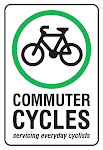 |
| From Biking in Tongues |
I also realized in hindsight that I had managed to conduct the entire exchange in Russian. And of course, the inevitable mime. I should mention that the produce is all behind the counter so much pointing is required. Learning enough functional language in each country has been an absorbing pastime, and one that – repeated – has taught us which are the useful phrases to learn. Phrases like ‘We are cycling from (blank) to (blank)’ and ‘Where is the toilet?’ are incredibly and globally useful, whereas ‘I hope your animals are fattening nicely’ is rather specific to small-talk in the Mongolian steppe. Commerce, however, can usually be conducted with gestures only, though it does seem polite to ask nicely for the local delicacies.
 |
| From Biking in Tongues |
I like the sound of Russian. It is rich, fruity and confident from the lips of women and both masculine and lyrical from men. The most useful phrase I have mastered is “I’m sorry, I don’t speak Russian”. With practice, I have discovered that range of inflections can produce varying results. Initially, this phrase seemed to evoke a certain level of surprise and dismay, perhaps, that we would venture across this wide land without skill in its mother tongue. It can be used as an all-purpose brush off, to steer clear of conversations with people we’d rather avoid, or an explanation of our blank stares of incomprehension. It doesn’t in any way deter a stream of rapid-fire Russian coming our way, though. During our truck ride with Anatoly (‘Tolya!’), it was part of a mutual acknowledgement of lack of shared language which was quickly followed by a happy burbling from both sides and occasional recognition of a word. Most commonly, though, I use it with a hand on my chest as a gesture of sincerity and a tone that (I hope) says “Forgive me, for I am but a simple tourist and my greatest failing in life is not to have mastered your language”. It seems to work, at least with the shop-keeping women who adopt a most maternal tone and proceed to patiently provide me with delicious goods.
There are things that add significant value to our smattering of Russian. A willing participant in the charades that inevitably accompany any direction-seeking or requesting of a complicated object. A working knowledge of Cyrillic script (which at least gives us an ability to make out words at something less than a pre-school reading speed). A pen and paper for language-pictionary. A Russian-English, English-Russian dictionary, a couple of friendly fellow house-guests and a bottle of doma-vodka (home-made).
 |
| From Biking in Tongues |
So few people we have met here speak any English, and we have often experienced the vulnerability of not being able to be understood. It is here that we thank the good will of the people who draw their own pictures or go out of their way to take us to a place, rather than persist with directions we don’t understand.
Ya velocipedist. I am cyclist. And I thank you for your patience.



0 comments:
Post a Comment